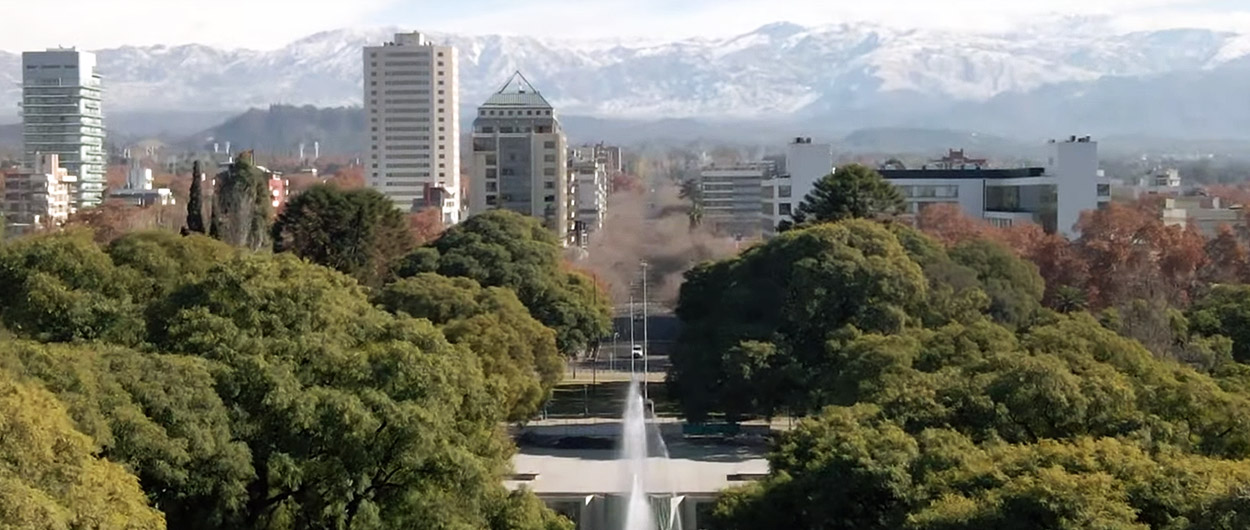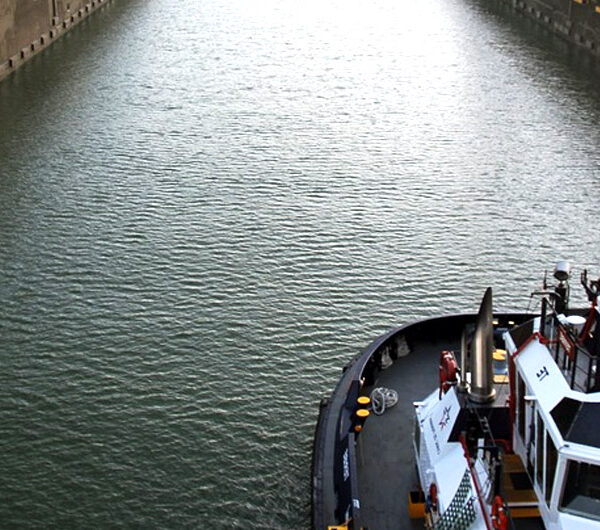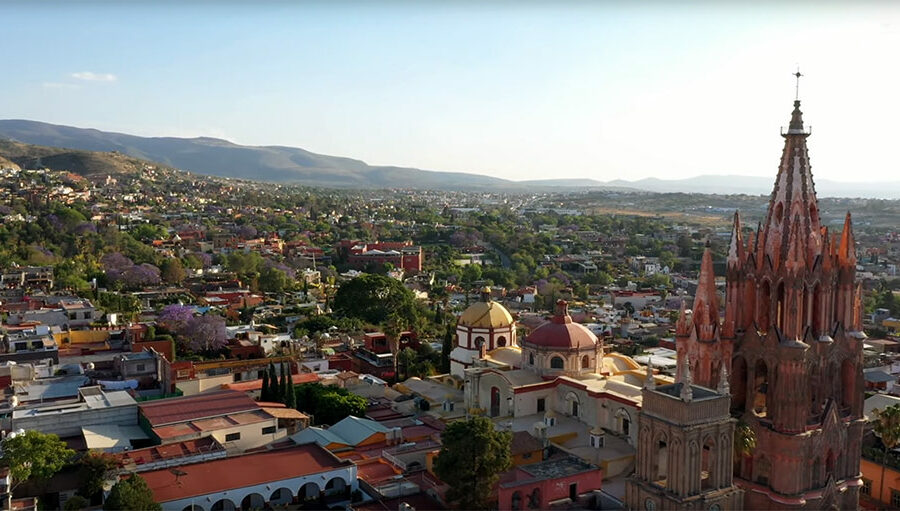In 2016 I was lucky enough to live in Argentina for a few months. Specifically, in the city of Buenos Aires. At the time, remote working was only starting to take off, but the country was already gaining popularity amongst the people looking for alternative countries to live in.
At the time I thought to myself: “This would be a great place to retire”. And I was not alone. Argentina is becoming a popular retirement destination for Europeans. And while the numbers show that Americans still prefer other countries like Mexico, this South American country is definitely something you might want to consider as an option.
Argentina, located in South America, boasts a population of over 45 million people and is home to vibrant cities such as Buenos Aires, Cordoba, and Rosario. The country’s diverse geography includes the Andes Mountains, Iguazu Falls, and the beautiful beaches of Mar del Plata.
Retiring in Argentina comes with its advantages, such as a lower cost of living, high-quality healthcare, a diverse culture, a growing expat community, and a pleasant climate. And then there’s the food. The food is AMAZING! especially for those that enjoy a good steak and wine.
However, the country also has its disadvantages. These include but are not limited to economic and political instability, high inflation rates, safety concerns, a language barrier, and a bureaucratic system that may pose challenges.
In this blog post, we will provide an in-depth analysis of these pros and cons to help you make an informed decision about retiring in Argentina. Whether you’re considering a laid-back lifestyle or an adventure-packed retirement, this guide will give you a comprehensive view of what to expect in this beautiful country.
Advantages of retiring in Argentina
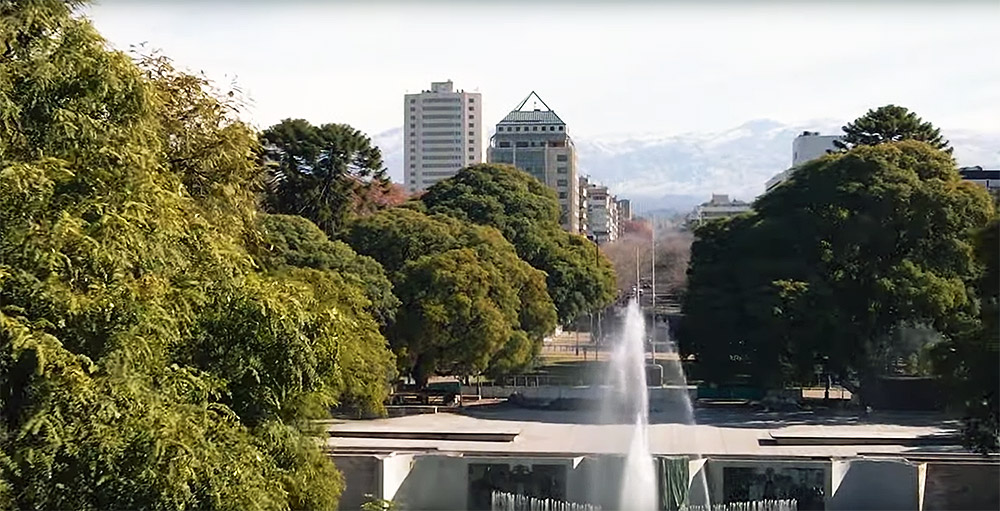
1. Low cost of living
Retiring in Argentina can be a great option for those looking to stretch their retirement savings. One of the biggest advantages of retiring in Argentina is the country’s affordable cost of living. Compared to other popular retirement destinations, such as Europe and North America, the cost of living in Argentina is significantly lower.
Retirees can find affordable housing options, whether they choose to rent or buy. Utilities, transportation, and food are also relatively cheap compared to other countries. In particular, food is a significant draw for retirees who enjoy exploring new cuisines. Argentina is famous for its beef and wine, but it also has a rich culinary history that includes a variety of dishes influenced by Italian and Spanish immigrants.
Retirees can also take advantage of the favorable exchange rate, which means they can get more for their money. The US dollar is strong against the Argentine peso, which makes it an attractive destination for retirees from North America. They can stretch their dollars further and enjoy a comfortable lifestyle without spending a lot of money.
2. High-Quality Healthcare
Another major advantage of retiring in Argentina is the country’s high-quality healthcare system. Argentina has a public healthcare system that is free and open to all, as well as a private system that offers additional coverage for those who want it.
In terms of healthcare quality, Argentina ranks above the average for Latin American countries. According to the World Health Organization, Argentina has a health system that provides universal coverage and access to care. Hospitals and clinics are modern and well-equipped, with highly trained doctors and nurses.
Foreigners can take advantage of this healthcare system by enrolling in the public system or purchasing private health insurance. Private insurance is affordable compared to other countries, and it offers a range of benefits, including access to top-quality doctors and hospitals.
3. Beautiful Scenery
Argentina is full of some of the most incredible landscapes in the world. Not to mention the country covers so many different latitudes and thanks to that it has a wide variety of climates, ecosystems, and biodiversity.
From the snow-capped Andes mountains to the beaches of Mar del Plata, Argentina offers a diverse range of landscapes and natural wonders.
One of the most iconic natural attractions in Argentina is Iguazu Falls, which is one of the largest waterfall systems in the world. The falls are located on the border between Argentina and Brazil, and they attract millions of visitors every year.
Another option is the beautiful Patagonia region, which is known for its rugged mountains, glaciers, and wildlife. The region is home to several national parks, including Los Glaciares National Park and Tierra del Fuego National Park, which offer stunning views and opportunities for outdoor recreation.
In addition to natural attractions, Argentina also has several beautiful cities, such as Buenos Aires and Cordoba, which are known for their architecture, culture, and nightlife.
4. Diverse culture and gastronomy
The country’s diverse culture and cuisine is a major attraction for retirees who are looking for a new and exciting cultural experience. Argentina’s culture is a unique blend of indigenous traditions and European influences, which is reflected in its art, music, and architecture.
One of the most notable aspects of Argentina’s culture is its passion for tango dancing. Tango originated in Buenos Aires in the late 19th century, and it has since become a central part of Argentine culture. Retirees can take tango lessons and enjoy live performances throughout the country, which can be a fun and engaging way to stay active and social.
Argentina is also known for its delicious cuisine, which is heavily influenced by Italian and Spanish flavors. Some of the most popular dishes in Argentina include empanadas, asado (barbecue), and milanesa (breaded meat). In addition to traditional Argentine cuisine, retirees can also enjoy a wide range of international foods, including sushi, Thai, and Indian cuisine.
The country offers retirees the opportunity to explore new tastes, music, and traditions. By immersing yourself in Argentine culture, you can broaden your horizons and experience new things that would be very hard to find back home.
5. Growing expat community
If you are considering retiring in Argentina, you’ll be pleased to know that there is a growing expat community in the country. According to the Argentine National Immigration Office, there were over 300,000 foreign residents in Argentina in 2021, and that number is increasing every year.
Many of the expats in Argentina are retirees from other countries, such as the United States, Canada, and Europe. This growing community provides retirees with the opportunity to make new friends and connections and to engage in social activities with like-minded individuals.
The expat community in Argentina is especially prominent in Buenos Aires, which is home to many international organizations and businesses. Additionally, there are several expat-focused organizations and clubs throughout the country, such as the Buenos Aires Expats Group and the International Association of Residents and Expats in Argentina.
Being part of a growing expat community can also be helpful for retirees who are navigating the challenges of living in a new country, such as learning the language and navigating the healthcare system. By connecting with other expats, newcomers can receive advice, support, and guidance as they settle into their new lives in Argentina.
Disadvantages of retiring in Argentina
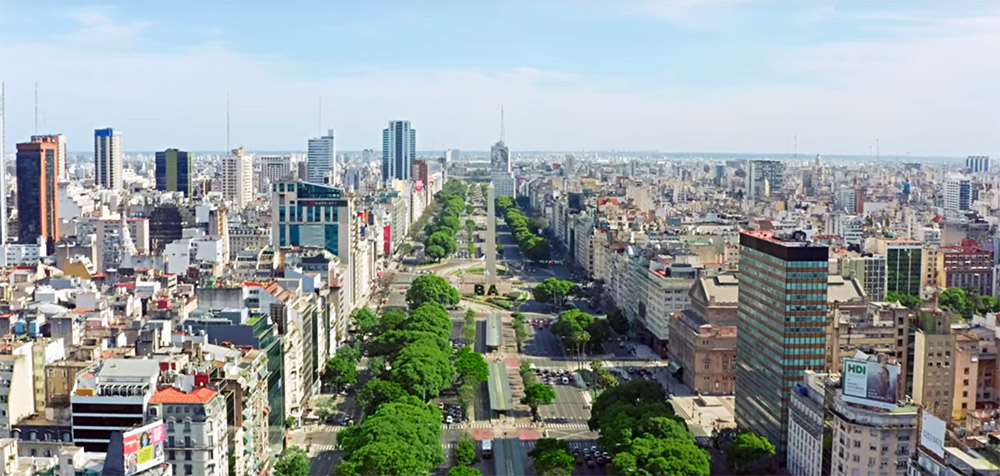
1. Economic and Political Instability
One of the biggest concerns for people considering moving to Argentina temporarily or permanently, is its economic and political instability. Argentina has a history of economic crises, including a default on its sovereign debt in 2001 and a recent recession that lasted from 2018 to 2020. This instability can have a direct impact on everyone’s finances and quality of life, including foreigners living in the country.
Additionally, Argentina has a complex political landscape, with frequent changes in leadership and policies that can create uncertainty for residents and investors.
While the government has implemented measures to stabilize the economy, including negotiating a new debt restructuring plan, the situation remains unpredictable. Folks considering Argentina as a retirement destination should carefully research and plan for the potential impact of economic and political instability on their finances and lifestyle.
2. High inflation rates
Argentina has a history of high inflation rates, which can be a concern for retirees living on a fixed income. Inflation in Argentina has been as high as 53.8% in 2019, and even with recent government efforts to control inflation, it remains one of the highest in the world.
This high inflation can have a significant impact on retirees’ budgets, as prices for goods and services can rise rapidly. Additionally, the value of the Argentine peso can fluctuate significantly, which can create uncertainty for those with savings or investments in the local currency.
Retirees considering Argentina as a retirement destination should carefully budget for the potential impact of high inflation on their expenses and seek advice from financial professionals on how to protect their assets from currency fluctuations.
3. Safety concerns
Argentina does not share the same cartel-related safety issues as other countries like Mexico, Colombia, or Brazil. There is very little activity in that regard in the country and is overall a safe place to live.
However, they do have a problem with high petty crime rates, especially in larger cities like Buenos Aires and Rosario. Theft and pickpocketing are common in crowded areas, and violent crime can occur in some neighborhoods, particularly at night.
Foreigners coming to Argentina should take basic precautions, such as avoiding walking alone at night and being aware of their surroundings. It is also recommended to keep valuables out of sight and avoid carrying large amounts of cash.
While safety concerns should not be taken lightly, many retirees have found that by taking reasonable precautions, they can live comfortably and safely in Argentina.
4. Language barrier
Spanish is the official language of Argentina, and while English is taught in schools, not a lot of people are proficient at it. This can make it difficult to navigate daily life, such as going to the grocery store, dealing with administrative tasks, or seeking medical attention.
However, it’s worth noting that many expats have found ways to overcome this barrier. Some choose to enroll in language courses or hire a tutor, while others opt to live in areas with a larger English-speaking population. In popular expat destinations such as Buenos Aires, Mendoza, and Cordoba, it’s common to find bilingual locals and businesses catering to the needs of non-Spanish speakers.
It’s also worth mentioning that learning a new language can be a rewarding and enriching experience, especially in a country as culturally diverse as Argentina. Embracing the local language and customs can help retirees to fully immerse themselves in the local culture and make meaningful connections with locals.
5. Bureaucracy and Red Tape
Argentina has a complex and often slow bureaucracy, which can be frustrating for those who are accustomed to a more efficient system. For instance, obtaining residency can take several months or even years, and the process can be complicated and requires a lot of paperwork.
Tasks like obtaining permits and licenses for everyday life, such as opening a bank account or starting a business can be long and painful processes, especially for foreigners that might not be able to meet all the requirements. This can also involve navigating different levels of government, from local to national, and can be a lengthy and challenging process.
Corruption can also be a concern. It is not uncommon to be asked to pay bribes or navigate other forms of corruption in order to get things done. This can be both frustrating and stressful, and it is important to be aware that this is just how things work in some countries.
While bureaucratic hurdles can be a significant challenge, it is possible to navigate them with the help of a trusted local advisor or lawyer. With patience and persistence, retirees can find ways to overcome these obstacles and enjoy the many benefits of living in Argentina.
Summary
- Retiring in Argentina has numerous benefits, such as a low cost of living, high-quality healthcare, beautiful landscapes, diverse culture, and cuisine, and a growing expat community.
- However, it also has its drawbacks, such as economic and political instability, high inflation rates, safety concerns, language barriers, bureaucracy, and red tape.
- Despite the challenges, many retirees still choose to retire in Argentina due to its unique lifestyle and affordable living options.
